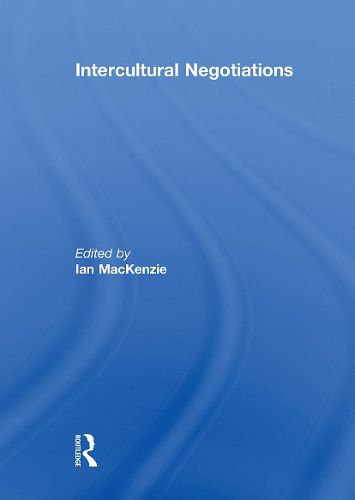Readings Newsletter
Become a Readings Member to make your shopping experience even easier.
Sign in or sign up for free!
You’re not far away from qualifying for FREE standard shipping within Australia
You’ve qualified for FREE standard shipping within Australia
The cart is loading…






Intercultural communication is a daily occurrence for most people, as a result of transnational population flows and globalized media. The contributions to this volume propose reconceptualizations of orthodox accounts of intercultural communication based on supposed national cultural characteristics. They approach the subject from a variety of angles, including intercultural communication training, the role of power in intercultural negotiations, the linguistic situation in Europe, and the conflict between nationalist and transnational discourses in literature. The articles consider the need for a revision of the notions of culture and communication given multicultural and multilingual environments such as universities; the use of English as a lingua franca in Europe; how collaborative discourse can reshape power relations; the importance of social intelligence in intercultural communication; cultural and linguistic influences on conceptual metaphors and their translation; and the way Irish and Galician women poets negotiate competing ideologies such as nationalism, feminism, Celticism and Catholicism. This book was published as a special issue of the European Journal of English Studies.
$9.00 standard shipping within Australia
FREE standard shipping within Australia for orders over $100.00
Express & International shipping calculated at checkout
Intercultural communication is a daily occurrence for most people, as a result of transnational population flows and globalized media. The contributions to this volume propose reconceptualizations of orthodox accounts of intercultural communication based on supposed national cultural characteristics. They approach the subject from a variety of angles, including intercultural communication training, the role of power in intercultural negotiations, the linguistic situation in Europe, and the conflict between nationalist and transnational discourses in literature. The articles consider the need for a revision of the notions of culture and communication given multicultural and multilingual environments such as universities; the use of English as a lingua franca in Europe; how collaborative discourse can reshape power relations; the importance of social intelligence in intercultural communication; cultural and linguistic influences on conceptual metaphors and their translation; and the way Irish and Galician women poets negotiate competing ideologies such as nationalism, feminism, Celticism and Catholicism. This book was published as a special issue of the European Journal of English Studies.